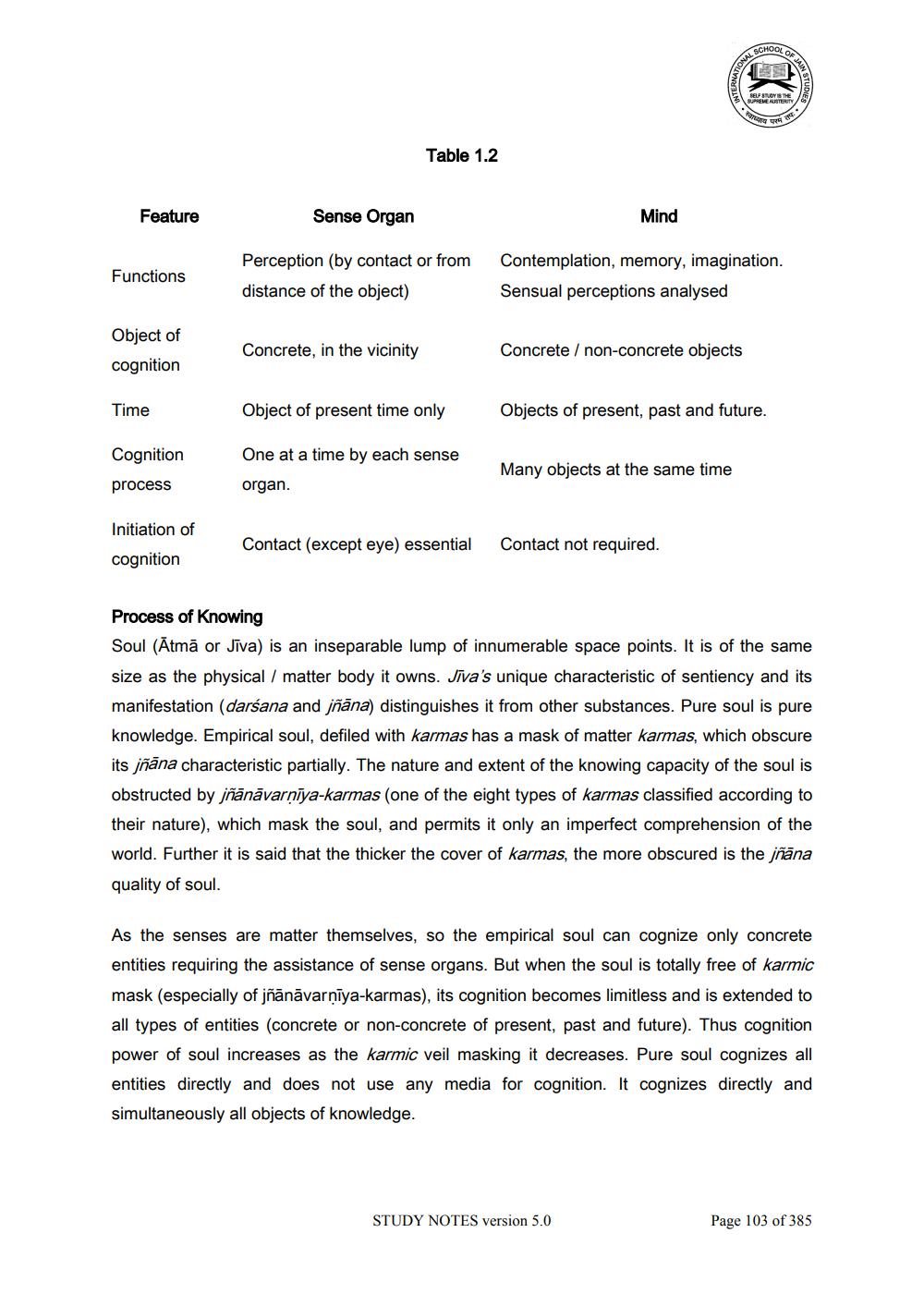________________
Table 1.2
Feature
Sense Organ
Mind
Functions
Perception (by contact or from distance of the object)
Contemplation, memory, imagination. Sensual perceptions analysed
Object of cognition
Concrete, in the vicinity
Concrete / non-concrete objects
Time
Object of present time only
Objects of present, past and future.
Cognition process
One at a time by each sense organ.
Many objects at the same time
Initiation of cognition
Contact (except eye) essential
Contact not required.
Process of Knowing Soul (Atmā or Jiva) is an inseparable lump of innumerable space points. It is of the same size as the physical / matter body it owns. Jīva's unique characteristic of sentiency and its manifestation (darśana and jñāna) distinguishes it from other substances. Pure soul is pure knowledge. Empirical soul, defiled with karmas has a mask of matter karmas, which obscure its jñāna characteristic partially. The nature and extent of the knowing capacity of the soul is obstructed by jñānāvarnīya-karmas (one of the eight types of karmas classified according to their nature), which mask the soul, and permits it only an imperfect comprehension of the world. Further it is said that the thicker the cover of karmas, the more obscured is the jñāna quality of soul.
As the senses are matter themselves, so the empirical soul can cognize only concrete entities requiring the assistance of sense organs. But when the soul is totally free of karmic mask (especially of jñānāvarnīya-karmas), its cognition becomes limitless and is extended to all types of entities (concrete or non-concrete of present, past and future). Thus cognition power of soul increases as the karmic veil masking it decreases. Pure soul cognizes all entities directly and does not use any media for cognition. It cognizes directly and simultaneously all objects of knowledge.
STUDY NOTES version 5.0
Page 103 of 385




